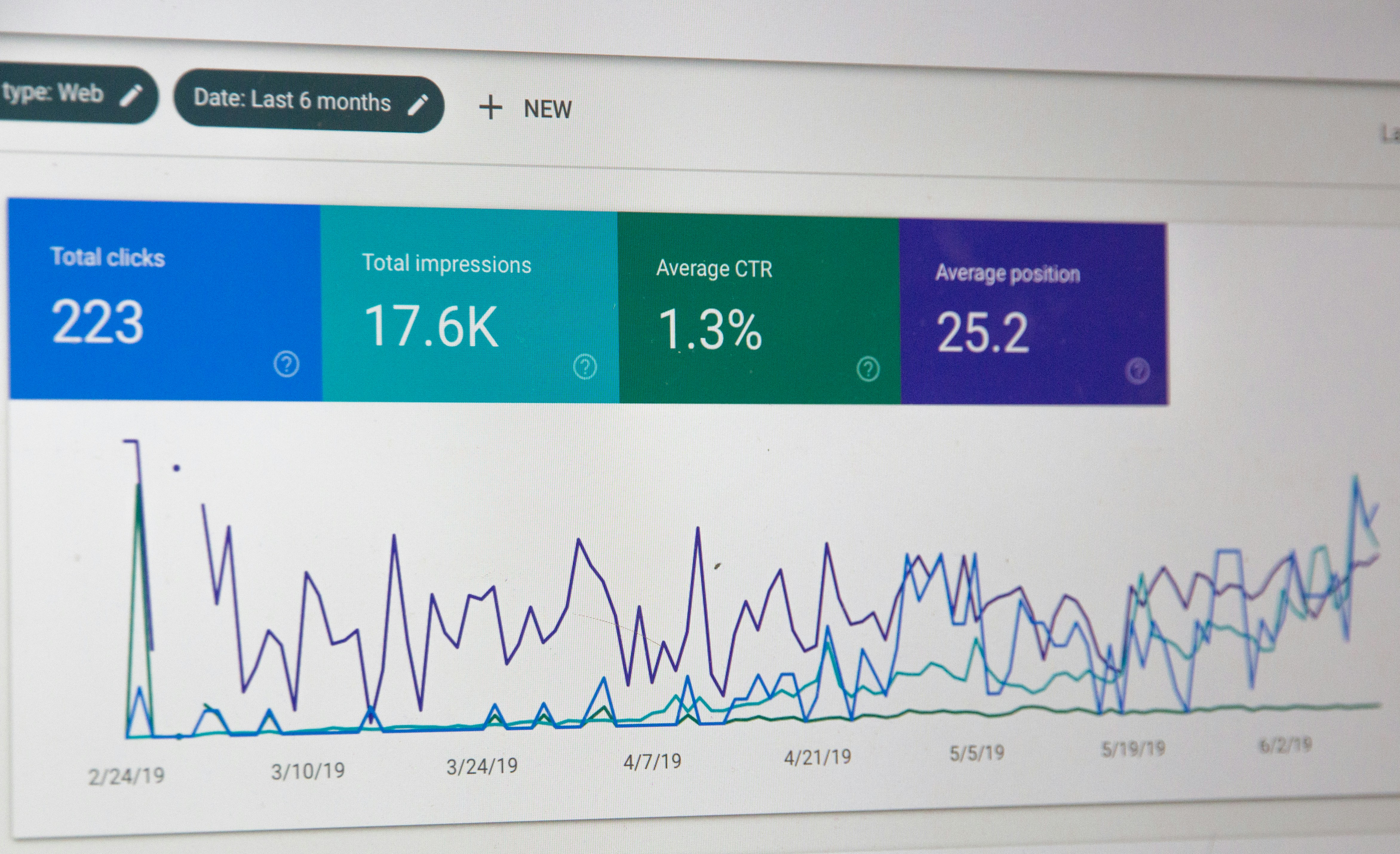.svg)
Industrial buyers aren’t browsing flashy ads or impulsively clicking “Buy Now.” They’re engineers, procurement officers, and decision-makers doing thorough research long before they ever fill out a form. That’s why industrial marketing requires a more strategic, long-game approach—one that speaks to logic, specs, and ROI.
In today’s digital-first economy, industrial brands can no longer afford to treat marketing as an afterthought. A smart, intentional digital strategy doesn’t just generate leads—it builds trust and shortens the sales cycle.
The shift is already happening. According to ThomasNet’s 2022 Industrial Buying Habits Survey, 74% of B2B buyers research at least half of their purchases online before contacting a supplier.
That means if your digital presence is vague, outdated, or hard to navigate, you’re losing potential customers before you even know they exist. And in complex industries like manufacturing, logistics, or heavy equipment, the decision-making process can stretch months—making sustained digital visibility even more important.
In the industrial space, your audience isn’t looking to be entertained. They want answers—clear, detailed, and accurate. A strong content strategy positions your business as a trusted resource, not just a vendor.
What kind of content works?
By answering your audience’s questions before they ask, you build credibility and improve your search rankings at the same time.
Pay-per-click (PPC) campaigns and display ads can be effective for high-intent keywords or retargeting, but in industrial niches with long sales cycles and high-ticket items, it’s easy to waste budget fast.
Even worse, click fraud—bots or competitors artificially inflating your ad costs—is a growing concern. According to Statista, digital ad fraud is expected to cost marketers over $100 billion globally by 2023.
If you’re running Google Ads or display networks, it’s worth understanding what is click fraud and using tracking tools or filters to reduce invalid traffic.
Smart targeting, combined with frequent performance audits, ensures your ad dollars are reaching real prospects.
Search engine optimization (SEO) remains one of the most cost-effective digital strategies for industrial marketing. But generic blog posts won’t cut it. Your SEO efforts need to reflect the technical, niche-focused nature of your products or services.
Focus your SEO strategy on:
Over time, these pages can draw in highly qualified leads that are actively looking for what you offer.
Unlike B2C marketing, where decisions happen quickly, industrial buyers go through long research phases. Your strategy should support the entire journey—from discovery to post-sale support.
Some key tools to incorporate:
An effective industrial strategy isn’t just about visibility—it’s about creating a seamless, informed experience across every stage.
If you're still trying to adapt general B2B tactics to fit your industrial niche, you’re likely leaving opportunities on the table. Working with resources or partners that understand marketing for manufacturers can give you a head start. These insights are tailored to the technical buying process and long sales cycles unique to the industry.
From trade show integrations to inbound content funnels, a manufacturing-specific approach keeps your message relevant and aligned with buyer expectations.
In the industrial world, reputation and relationships still matter—but so does reach. Your next customer is already searching online. The question is, will they find your brand, or your competitor’s?
Smarter digital strategies help industrial companies stand out, stay relevant, and grow sustainably—without gimmicks. It starts with understanding your buyer, optimizing your message, and committing to consistency.
.svg)

Industrial buyers aren’t browsing flashy ads or impulsively clicking “Buy Now.” They’re engineers, procurement officers, and decision-makers doing thorough research long before they ever fill out a form. That’s why industrial marketing requires a more strategic, long-game approach—one that speaks to logic, specs, and ROI.
In today’s digital-first economy, industrial brands can no longer afford to treat marketing as an afterthought. A smart, intentional digital strategy doesn’t just generate leads—it builds trust and shortens the sales cycle.
The shift is already happening. According to ThomasNet’s 2022 Industrial Buying Habits Survey, 74% of B2B buyers research at least half of their purchases online before contacting a supplier.
That means if your digital presence is vague, outdated, or hard to navigate, you’re losing potential customers before you even know they exist. And in complex industries like manufacturing, logistics, or heavy equipment, the decision-making process can stretch months—making sustained digital visibility even more important.
In the industrial space, your audience isn’t looking to be entertained. They want answers—clear, detailed, and accurate. A strong content strategy positions your business as a trusted resource, not just a vendor.
What kind of content works?
By answering your audience’s questions before they ask, you build credibility and improve your search rankings at the same time.
Pay-per-click (PPC) campaigns and display ads can be effective for high-intent keywords or retargeting, but in industrial niches with long sales cycles and high-ticket items, it’s easy to waste budget fast.
Even worse, click fraud—bots or competitors artificially inflating your ad costs—is a growing concern. According to Statista, digital ad fraud is expected to cost marketers over $100 billion globally by 2023.
If you’re running Google Ads or display networks, it’s worth understanding what is click fraud and using tracking tools or filters to reduce invalid traffic.
Smart targeting, combined with frequent performance audits, ensures your ad dollars are reaching real prospects.
Search engine optimization (SEO) remains one of the most cost-effective digital strategies for industrial marketing. But generic blog posts won’t cut it. Your SEO efforts need to reflect the technical, niche-focused nature of your products or services.
Focus your SEO strategy on:
Over time, these pages can draw in highly qualified leads that are actively looking for what you offer.
Unlike B2C marketing, where decisions happen quickly, industrial buyers go through long research phases. Your strategy should support the entire journey—from discovery to post-sale support.
Some key tools to incorporate:
An effective industrial strategy isn’t just about visibility—it’s about creating a seamless, informed experience across every stage.
If you're still trying to adapt general B2B tactics to fit your industrial niche, you’re likely leaving opportunities on the table. Working with resources or partners that understand marketing for manufacturers can give you a head start. These insights are tailored to the technical buying process and long sales cycles unique to the industry.
From trade show integrations to inbound content funnels, a manufacturing-specific approach keeps your message relevant and aligned with buyer expectations.
In the industrial world, reputation and relationships still matter—but so does reach. Your next customer is already searching online. The question is, will they find your brand, or your competitor’s?
Smarter digital strategies help industrial companies stand out, stay relevant, and grow sustainably—without gimmicks. It starts with understanding your buyer, optimizing your message, and committing to consistency.


